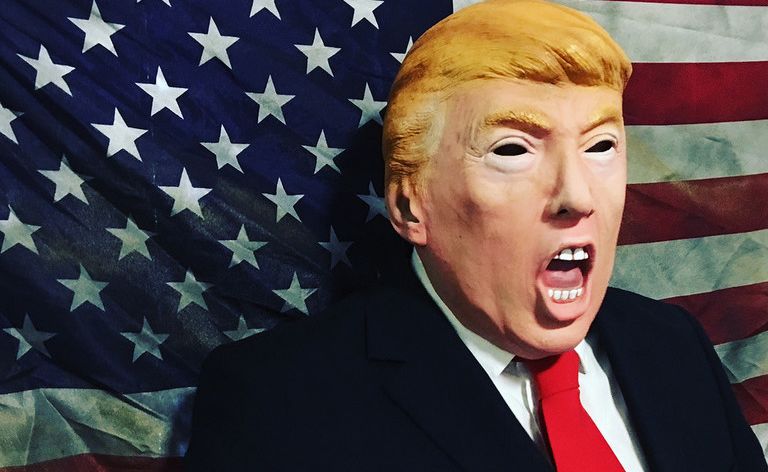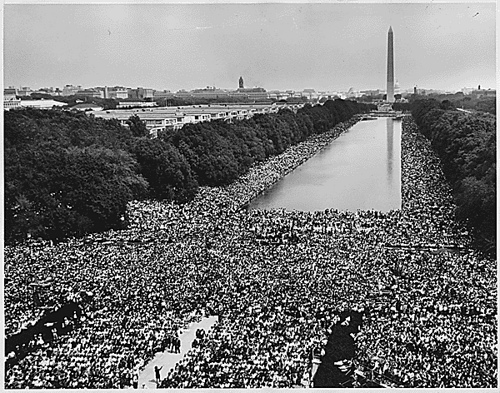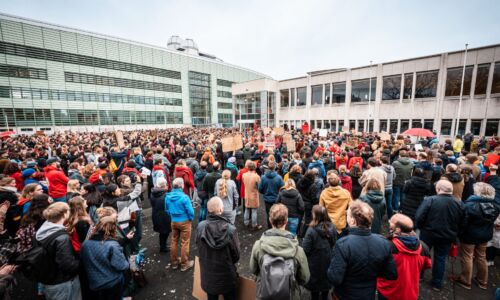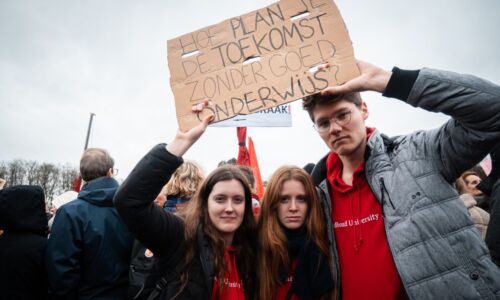The opposing force of Martha Larson and 200.000 others
-
 Foto: Eva Rinaldi, Creative Commons
Foto: Eva Rinaldi, Creative Commons
We have to make ourselves heard, a group of women in the US thought. That thought became the Women's March on Washington, a protest march on the day after Donald Trump's inauguration. As of today, 200.000 people applied. The American Martha Larson, assistant professor information science in Nijmegen, will join the march.
Why are you going to joint the protest march?
‘The polls we saw prior to the elections were based on data. And they were completely wrong. We let the internet inform us more and more, but we are all influenced by the filter bubble: the algoritmes in search engines that decide what we read and see. We miss a lot. Something goes wrong between the digital world and the physical world. A lot is happening in America, I am currently in the country. I feel the need to try and feel what is really going on here, to be amongst the people.’
The march is a protest against Trump.
‘It is not an anti-Trump march. The Guardian wrote it down quite well: it is a social justice event. The march is also not just for women, it is meant for all groups who feel threatened, also for immigrants and gays. There is enough fragmentation and polarisation, we should try to find each other and engage in conversation. Together, we can show that we are here and what we stand for. It is a peaceful protest.’
Are you worried about the situation the United States is in?
‘It is hard to worry, because it is so unimaginable what is happening here. Normally, I try to only worry about things that I can control. What I definitely do worry about, is that people let the chance to make themselves heard go by. The chance to say: ‘no, that is not the way you talk during a political debate’, or ‘without respect respect for everybody in the country, you cannot call yourself a politician’, or ‘it is not responsible to handle the media like that’. The world is not a stock market: you just shout something and wait for the reactions.’

Does a march like this make a difference?
‘A lot of the civil rights we have in America, are there because people took to the streets. Think about the March on Washington in 1963, with Martin Luther King’s speech. Historically, this is the way for us Americans to change things or choose direction. I hope this march has an influence, but possibly, we will only know that in the long run.’
Did you travel to America especially for the inauguration?
‘Yes, I was born close to Washington. After the elections, I craved solidarity. I am here on a two-week-vacation to visit friends and family. On Saturday, I will take a bus to the march in Washington. During the inauguration, I will be at my aunt’s house.’
Will you follow the ceremony on TV?
‘I have not seen Obama’s inauguration either – I did listen to most of his speeches afterwards. In Trump’s case, I would have to overcome a big emotional aversion to be able to watch it. If I would be waiting for an elevator, the doors opened and he would be in it, I would hesitate to get in. If it was any other American president, I would definitely take the elevator, out of curiosity. But with him, I hear the things he said about women in my head: his behaviour destroys most communication.’
Would you want to live and work in Ameria right now?
‘I have lived in the Netherlands for ten years and I work in a dream environment in Nijmegen, so no. But deep down, I feel some guilt. It’s not that I could have changed something, had I lived in America, but still. I feel like us scientists have the responsibility to offer counterweight.’



